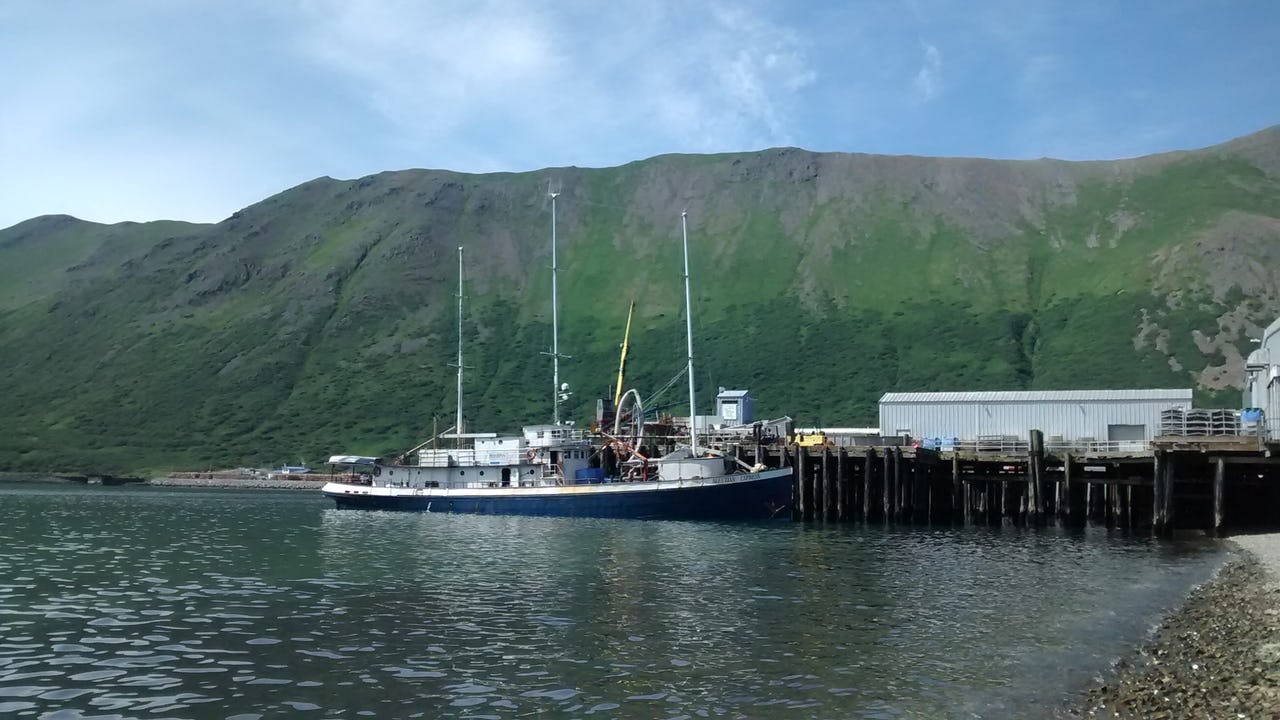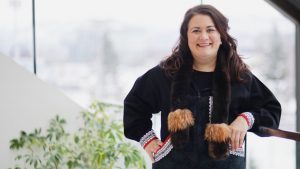It’s Our Table: Indigenous People Shaping Arctic Policy

The Aleutian Express offloading salmon in King Cove, Alaska. Photo: Aleutianexpress
In recent years, women researchers, scientists, and local champions have elevated their visibility and empowered their voices across the world. The Arctic is no exception. With powerful organizations like 500 Women Scientists and local movements like Women in Polar Science and Plan A growing their reach and impact, women are sharing their personal narratives, highlighting their contributions, and supporting each other like never before. The Arctic Institute’s Breaking the Arctic’s Ice Ceiling is our team’s contribution to this movement. In a series of commentaries, articles, and multimedia posts, we are highlighting the work of women working and living in the Arctic.
The Arctic Institute Breaking the Arctic's Ice Ceiling Series 2019
- Looking Up: Women in Arctic Science
- The Gender Gap in Arctic Research Awards and Leadership – Infographic
- An Arctic Imposter’s Journey to Belong
- Women Are America’s Climate Change Champions
- Vegan at Sea-gan: The Arctic Ocean
- Golden Rule in Arctic Science and Community Partnerships
- Is the Future of the European Arctic Socially Sustainable?
- Geo-mapping in the Canadian Arctic
- Women in Polar Research: A Brief History
- It’s Our Table: Indigenous People Shaping Arctic Policy
My grandmother likes to tell people how when I was born there was only one landline telephone in King Cove, Alaska, so she had to wait at the house with the landline to hear the news of my birth. Since then, our rural Alaska community has experienced major shifts in our way of life, due to factors like the proliferation of mobile technologies and climate change. As a child, I didn’t realize how connected these shifts were and continue to be to Arctic policy, particularly on a global scale. Back then, I didn’t know any Indigenous people involved in policy at that level.
I grew up in a small matriarchal society in the Aleutians where we often feel both physically and politically disconnected from the rest of the world. In my hometown of King Cove, women are leaders and their voices are not only heard but valued in a way that is often absent in other countries and societies. My grandmother was deeply involved in community efforts to shape policy on the local and even the state level, but never on the international stage. As an adult, I now see the barriers put in place to keep Indigenous peoples, and Indigenous women in particular from joining these conversations.
These barriers are not just political but cultural. In addition to the long history of oppression my people have experienced, we must also overcome a large cultural gap when explaining to outsiders that policy is personal for us. It isn’t just abstract – it has an immediate effect on our communities, impacting our traditional food practices, our education systems, and our fishing rights (which are determined by federal agencies). To demonstrate how personal these policies are: my uncles are fishermen, so their livelihood and ability to feed their family depends on fishing rights. A lot of people outside of Alaska don’t realize how important subsistence hunting and fishing are to us and how negatively Arctic policies can impact those traditional practices.
Being a Voice for Indigenous People
One of my goals as an Indigenous leader in Arctic policy is to bridge that understanding gap and ensure that Indigenous lifeways are taken into account while policies are being considered on the global stage. This goal carries through to every aspect of my work – from my membership in the Aleut Corporation 1) to my role as a community manager at Alaska’s premier telecommunications company (GCI) to my service on the Arctic Council’s Task Force on Telecommunications in the Arctic (TFTIA) under the U.S. chairmanship and the Task Force to Improve Connectivity in the Arctic (TFICA) under the Finnish chairmanship.
Through this work, I’ve learned how easy it can be for people to get stuck in a community, state or country view when thinking about Arctic issues. But the Arctic is bigger than any one person or nation. That’s why it’s so important for Native people like myself to join groups like TFTIA and TFICA and to work on global policy issues alongside people from other states, countries and communities. If we don’t, our voices will never be heard over those from the various nations and organizations with a stake in the Arctic.
Making Sure Our Voices Are Heard
Our struggle to be heard is a frequent topic of conversation at Arctic events and conferences. At a recent event I attended, it was argued that more Indigenous voices need to be at the table. To that, someone said, “No, it’s their damn table.” For me, this quote emphasizes two important points. One, that Native peoples are the original inhabitants of the Arctic and that we should be shaping and driving Arctic policy; and two, that our power to shape policy is still being regulated by people outside our community – as indicated by the fact that the speaker said “their” and not “our.”
Even though the Arctic is our home, others still assume they can speak for us and interfere in our ability to help shape Arctic policy. Take the failure to reach a consensus on climate change at the Arctic Council. Currently, the United States refuses to acknowledge climate change – unlike every other Arctic nation. If not for the existence of permanent participant groups like the Aleut International Association, the United States representation at the Arctic Council would’ve unilaterally declared that the people of this Arctic nation aren’t worried about climate change when that just fundamentally isn’t true.

Moving forward, I would like to see more Native people involved in shaping Arctic policy at the highest level. It’s our table, after all. Our planet. Life in the Arctic is changing rapidly, and it will only continue to do so in the years to come. Just look at how traditional lifestyles have evolved in the digital era. Subsistence hunters now use apps to track weather patterns. My company, GCI, is proposing a fiber line that would run through the Aleutians, right where I grew up. Things like that seemed impossible when my grandmother was sitting by the only telephone in King Cove, waiting to hear that I had been born, but that’s our new reality: a global, more connected, more outspoken Arctic.
References